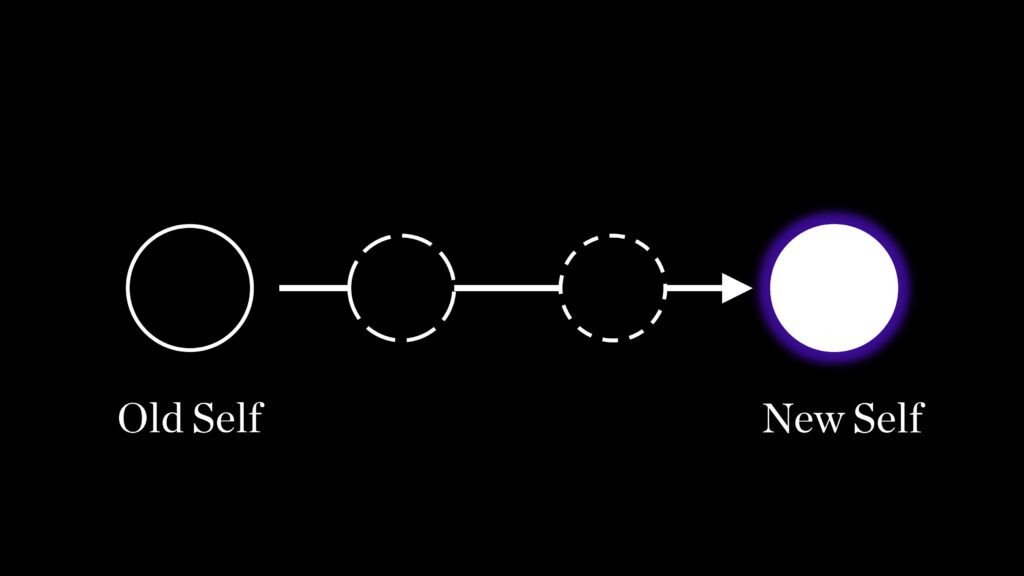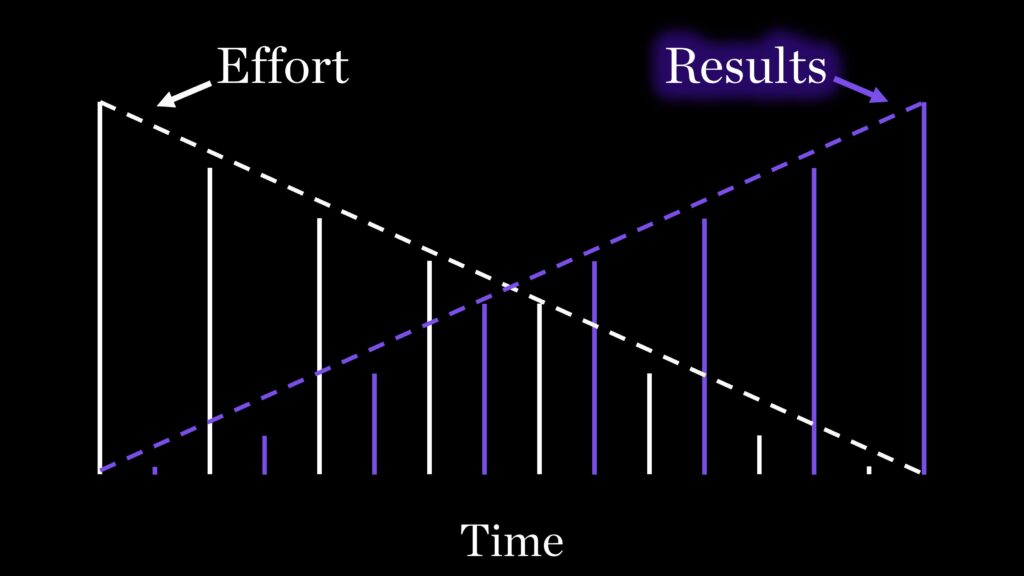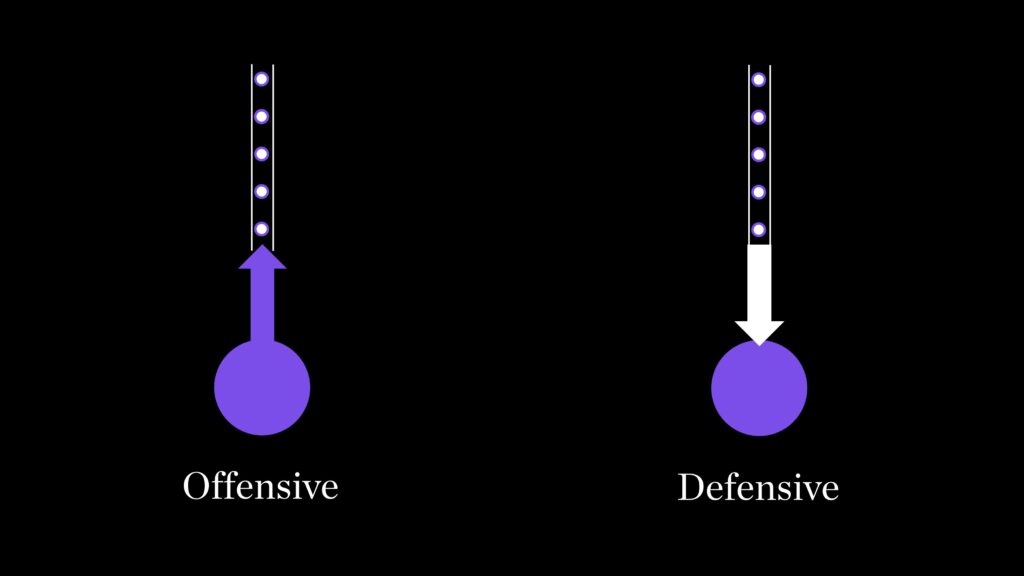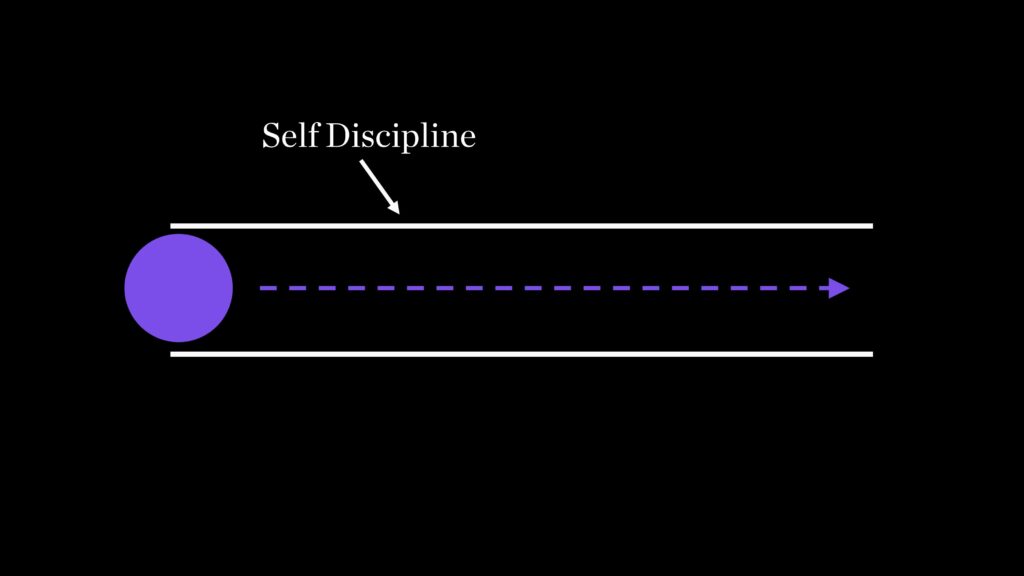Article last updated on April 22, 2022
Do you think you lack the traits of a disciplined person?
Are you disciplined enough to get ahead in life? Do you work hard every day? Do you make sure that you do the right thing even though others may not agree with you?
You can learn how to become a disciplined person who gets things done.

In fact, you can develop these traits in yourself to help you achieve any goal you set for yourself and in fact it gets easier with time.
Self-disciplined people have certain characteristics that separate them from those who are undisciplined.
I’ve created a list of 13 traits that will help you become a disciplined person.
These traits are universal, and anyone can learn them. Once you master these traits, you’ll never look back.
Set Micro Goals
One of the most common mistakes that people make when trying to achieve their goals is setting too many big ones.

It’s easy to set yourself up for failure if you try to tackle too much at once. Instead, break down your goal into smaller chunks and work towards achieving each one separately.
I call them micro goals, you can call them mini goals, or baby steps. It doesn’t matter what you call them, as long as you follow through on them.
This approach works especially well if you’re working towards a long-term goal.
For example, if you want to lose weight, you might decide to focus on losing 1 pound per week instead of aiming for 10 pounds in one month.
The idea is to make small incremental improvements every day until you reach your final goal.
Setting micro goals helps you avoid the temptation to give up when you hit roadblocks along the way. It also gives you a chance to celebrate small victories, which can boost your confidence and motivation.
In addition to helping you achieve your goals, setting micro goals can also help you learn valuable lessons along the way.
When you fail to meet a goal, you can always look back and analyze what went wrong. This knowledge can then be used to improve future attempts.

For example, if you failed to lose weight last week, you could ask yourself why you didn’t succeed.
Was it due to a lack of willpower? Did you eat more than usual? Were you distracted by other activities?
Once you’ve identified the problem, you can adjust your behavior accordingly next time.
Micro goals are also useful for keeping track of progress.
If you have the habit of forgetting to log your daily activity, you can simply write down your accomplishments on a piece of paper and put them somewhere where you’ll see them regularly.
The key thing to remember is that setting small goals is easier than setting large ones.
So if you’re having trouble reaching your ultimate goal, try breaking it down into smaller pieces.
Should I set goals that are too high?
Setting lofty goals isn’t necessarily a bad thing, but there are times when it may not be the best strategy.
Having a clear goal in mind can motivate you to take action. However, if you set yourself up for failure by setting an unrealistic goal, you won’t be able to measure your success.
If you do set yourself up for failure, it’s important to recognize this fact and adjust your plan accordingly.
That’s why I’m suggesting setting up your micro goals. You should only aim for something that you know you can accomplish.
Treating Others Fairly
When you treat others fairly, you show respect for them. In turn, this makes them more likely to reciprocate with kindness.
If you want to get ahead in life, you should start treating people as though they were your equals.
If you’re disciplined enough to keep your promises, be honest, and treat others fairly, then you’ve got discipline. And that means you can achieve great things.
When you treat others fairly, you show respect for them. This builds trust and makes people feel valued.
People who are treated fairly are more inclined to reciprocate. They’re more likely to help you out when you need it.
And this leads to greater productivity and efficiency. So being fair helps everyone win.
Does treating others fairly mean being nice all the time?
No. Being nice doesn’t mean treating someone else unfairly. Being kind doesn’t mean being rude.
But treating people fairly does involve showing respect for them. It means doing your best to understand their point of view before making decisions.
Conscientious people tend to be good at this because they’re aware of the consequences of their actions.
Telling Yourself No
One of the most important traits of a disciplined person is the ability to tell yourself no.
If you’re not being honest with yourself, you won’t be able to tell when you’ve crossed the line between discipline and laziness.

When you say yes to too many things, you become overwhelmed and stressed out. You feel guilty and resentful because you haven’t been able to keep up with everything you said yes to.
But saying no to too many things doesn’t mean you should say no to everything. Saying “no” means you’re prioritizing and know what’s important and what isn’t.
Saying no to too many things helps you stay focused and avoid burnout.
So take some time to evaluate your life right now and decide what you need to say no to. Then set boundaries with yourself.
That’s what a disciplined person does.
Being Honest With Yourself
If you’re honest with yourself, you’ll be able to admit when you’ve failed and learn from it. It takes courage to face your mistakes and failures, but it’s essential to becoming a better person.

When you’re honest with yourself and others, you become more resilient. Resilience is defined as the ability to bounce back after a failure.
This trait keeps you humble and grounded.
You won’t feel entitled to special treatment because you were born rich, smart, handsome, or talented. Instead, you’ll accept your true self and work hard to improve your skills, knowledge, and relationships.
So while you may have achieved success at one point in your life, don’t let it go to your head.
Being dishonest with yourself will only lead to disappointment and regret.
You can’t fake humility. The best way to develop humility is by facing your weaknesses and learning from them.
You must also be honest about your strengths. If you’re not aware of them, you might end up feeling like you’re wasting your time.
As long as you’re honest with yourself about your weaknesses and strengths, you’ll be able to build on your successes without letting them go to your head.
When is it okay to lie to yourself?
It depends on where you stand on the spectrum between honesty and dishonesty.
The wrong mindset would be to lie to yourself so you could get ahead faster. This is called rationalization.
Rationalization is when you convince yourself of something even though you know it’s wrong.
In my opinion, it is never acceptable to lie to yourself. That would lead you to lie to others, even the ones who actually want to help you out, i.e., your accountability partner.
The right mindset would be to be honest with yourself and then make decisions based on that information.
Know That Discipline Is A Choice
The word discipline comes from the Latin disciplina, which means “training.”
It’s a choice that you make every day.
It’s an act of will.
Discipline is a conscious decision to change your behavior for the better.
A disciplined person makes choices based on his or her values.
The level of discipline required depends on who you are and where you are in your life.
Because this is a choice, it is possible to increase your level of discipline over time.
For example, if you find yourself eating junk food all the time, you could start making healthier choices instead.
Whatever it is that you want to accomplish, you can always choose to be disciplined.
It is great when you have a balanced life.
Discipline doesn’t mean you have to give up everything else in order to succeed. In fact, it’s quite the opposite.
By having balance in your life, you can focus on what matters most to you. And that’s a choice.
Be Willing To Make Changes
Being disciplined doesn’t just happen overnight. It takes practice and dedication to become a disciplined person. But if you work hard enough, you can develop these traits over time.

One thing that helps people become more disciplined is making small changes every day.
For example, instead of eating unhealthy food every night, try having a healthy snack instead. Instead of watching TV after dinner, read a book or play a game.
These small changes add up over time, helping you form habits that will lead to success.
It’s also important to stay motivated. When you feel unmotivated, remind yourself of the benefits of being disciplined.
Remind yourself of the reasons why you decided to change your lifestyle in the first place. Then, set goals for yourself and focus on achieving them.
Making changes isn’t easy. But if you stick with it, you’ll eventually get there.
Just compare what would happen if you didn’t take action to what would happen if you did.
If you decide to follow through, you’ll see results.
And when you see those results, you’ll be amazed at how quickly you’ve changed.
What will happen if I don’t make any changes?
You’ll continue doing things the way you’ve been doing them. You’ll keep living the same way as before.
Having a personality trait like discipline gives you an advantage.
But it’s not going to happen by itself. You have to put in the effort.
Don’t Let Your Past Hold You Back
Everyone has had bad days, weeks, months, or even years where they didn’t perform their best.

It happens to everyone, no matter who you are or what you do.
But if you let these setbacks hold you back from achieving success, then you’re doing yourself a disservice.
It’s easy to fall into the trap of thinking that past failures define us.
We allow ourselves to feel sorry for ourselves, and we end up letting our failures dictate our future. But instead of allowing failure to hold you back, learn from it and move forward.
Instead of dwelling on your past mistakes, focus on your strengths.
What traits do you possess that others don’t? How can you leverage these qualities to achieve success?
For example, if you’re a perfectionist, you might be able to work harder than other people to achieve your goals. Or maybe you’re a hard worker who always gets things done.
Whatever your strengths are, use them to your advantage.
Don’t let your past failures stop you from reaching your full potential.
Instead, use them as motivation to become the person you were meant to be.
Is holding on to the past just a bad habit?
Yes. We all have bad habits. But holding on to the past only hurts you.
Letting go of negative thoughts about the past and focusing on the present allows you to move forward and live life to its fullest.
Commit To Action, Not Outcome
To become a disciplined person, you must decide to act rather than wait for things to happen.

It’s easy to sit back and wait for others to complete tasks for you, but if you want to achieve success, you need to take responsibility for your own actions.
This doesn’t just apply to work situations; it applies to everything in life.
When you’re faced with a choice between doing nothing and doing something, always choose to do something.
Don’t let other people dictate your decisions for you. To take charge of your own destiny and never allow anyone else to tell you what to do.
It’s important to remember that discipline doesn’t mean being perfect. In fact, perfectionism is actually counterproductive.
Perfectionists tend to procrastinate, which means that they end up putting off the things that they need to accomplish. Instead, focus on completing small goals each day.
As long as you stay focused on accomplishing these smaller goals, you’ll eventually reach your larger goal.
Also, don’t forget to reward yourself for your hard work. Make sure that you give yourself credit for every accomplishment that you make.
Even if you didn’t succeed in reaching your ultimate goal, you still deserve recognition for making progress towards it.
How to have a shift in mindset from action focused versus outcome focused person?
The first step is to realize that there are two types of people: those who act and those who react.
You can either decide to act or react. If you choose to act, you will set yourself apart from the rest of society. You won’t be like everyone else.
You will be proactive about your life. You will think before acting. And you will always strive to improve yourself.
If you choose to react, you will be passive. You will follow the crowd. You will be reactive.
If you want to change your mindset, you need to start by changing your behavior.
Once you’ve changed your behavior, it will be easier to change your mindset.
Don’t Waste Time
A disciplined person doesn’t waste time. They work hard and put forth effort in everything they do. But what does this look like in real life?
It looks like someone who gets things done.
Someone who has goals and plans to achieve them.
Someone who works consistently toward achieving their goals.
Someone who takes pride in their accomplishments and shows off their successes to others.
This kind of person doesn’t waste time doing things that aren’t productive. Instead, they focus on the tasks that matter most and spend their time working on them.
They don’t procrastinate or let distractions distract them from their goals.

They don’t waste time being lazy or taking shortcuts. They don’t waste time by wasting other people’s time. And they don’t waste time by letting themselves become distracted by trivialities.
Instead, they set aside time each day to complete their daily tasks.
They plan their days and weeks ahead of time so that they can stay focused on accomplishing their goals. They avoid distractions and interruptions so that they can get things done without having to worry about anything else.
And they don’t waste time waiting for opportunities to present themselves. Instead, they actively seek out opportunities to grow and learn. They don’t wait for inspiration to strike; instead, they work hard to create opportunities for themselves.
The result is that they accomplish more than anyone else could have ever expected. They’re able to accomplish more because they don’t waste time.
Imagine how boring life would be if we all spent our time doing nothing…
Completing tasks on time is liberating. It gives us energy. It makes us feel good. We know that we did something worthwhile.
We don’t just go through the motions of everyday life. We actually do stuff. We make an impact on the world.
Taking Complete Responsibility
It’s easy to blame others for our failures, but we shouldn’t let ourselves off the hook either.

We all have bad days where we feel like quitting, but if we can learn to accept responsibility for our actions, then we can move forward stronger and smarter.
One thing that helps us stay disciplined is taking complete responsibility for our decisions. When we try to pass the buck, we end up feeling guilty and blaming ourselves for everything that goes wrong.
But if we admit that we are responsible for making poor choices, then we can begin to change our behavior and become a better person.
This doesn’t just apply to personal life; it applies to business too. If we want to grow our businesses, we must take ownership of our mistakes and learn from them.
It’s much easier to point fingers at someone else than it is to look within ourselves and figure out what went wrong.
We can also benefit from being disciplined in other areas of our lives.
For example, we can be disciplined with our diet, exercise, and sleep habits. These three things are essential to living a healthy lifestyle, and if we neglect them, we risk becoming unhealthy.
So next time you feel like giving up, remember that you’re not alone.
Everyone makes mistakes, and no matter how big or small those mistakes are, we can always learn from them.
Rely on Systems to Stay Focused
The best way to solidify discipline is to create systems that work for you.

If you have these systems, you might have daily routines and weekly plans and goals and quarterly reviews and annual planning sessions.
For example, if you plan to write a book, you might decide to write every day for 30 minutes. Or if you want to lose weight, you might commit to exercising three times per week.
Whatever goal you choose, you must create a system that works for you. Once you have a system in place, you’ll be able to focus on achieving your goals without being distracted by other things.
The cornerstone of discipline is consistency.
We often think that we will only be consistent when we reach some kind of ideal state, but this isn’t true.
Consistency comes from setting realistic goals and sticking to them consistently. It means working towards your goals every single day.
That’s why having a system or processes in place is vital to staying focused.
If you know that you’ll be spending an hour writing today, then you won’t waste time watching YouTube or scrolling through social media. You’ll spend that hour writing and nothing else.
You’ll find that once you get into the habit of doing something regularly, you’ll start to crave it more and more.
You’ll start to develop a routine around your goals, which will help you stay motivated.
How do successful person create systems?
Proper planning is the key to success. Successful people know exactly what they want and set about creating a strategy to achieve it.
To create a strategy, they first define their goals. They then break down these goals into smaller, more manageable pieces.
Once they’ve done this, they make sure that each piece fits together as part of a bigger picture. This ensures that they don’t miss anything important along the way.
Once they’ve defined their goals, they use proper planning tools to ensure that they remain on track.
A good tool to use would be a calendar. A calendar helps you keep track of all the tasks you need to complete, so you don’t forget any of them.
It’s also a good idea to block access to certain websites and apps, which is another way to avoid distractions.
Finally, using reminders is yet another great way to remind yourself to do something. This way, you’ll never forget what needs to be done.
Prepare for Unexpected Obstacles
When there are unexpected problems, being ready means having the knowledge and skills to deal with them.
For example, if you’re going on vacation, it’s helpful to pack extra clothes and toiletries in case you run into unforeseen circumstances.
It’s easy to become complacent when everything goes smoothly, but when challenges arise, it’s best to be ready.
Being prepared means knowing what you need to do, when you need to do it, and where you need to go. It also means having the confidence to follow through on your plans.
Don’t blame others for your mistakes, and don’t let other people control your decisions. Instead, take ownership of your actions and learn from them.
Don’t forget to include this trait in your own life. The more you practice, the easier it will be to stay focused and achieve your goals.
Never Forget Your Values
One of the most important traits of a disciplined person is that he never forgets his values. He knows what he stands for and doesn’t waver from these principles no matter what happens.

This means that he has a clear vision of where he wants to go and what he wants to accomplish. He does everything possible to achieve his goals, and he never gives up until he achieves them.
It’s easy to lose sight of our values over time, especially if we’re busy working hard to achieve our goals.
But if we remember who we are and what we stand for, we’ll always stay true to ourselves.
Discipline requires that you set aside certain times each week to reflect on your progress and make adjustments as needed.
This allows you to keep track of your progress and see whether or not you’re making any changes that would benefit your efforts.
By reflecting on your progress, you can identify if you are aligned with your values and if there are things about your plan that aren’t working.
Conclusion
In conclusion, discipline is a skill that everyone has within themselves. However, it takes practice to develop it and keep it intact.
So whether you want to become a disciplined person or you already are one, here are four takeaways that you can use to help you stay focused and motivated throughout your day.
- Set Micro Goals. Setting micro goals helps you stay focused because they give you a sense of accomplishment at every step along the way.
- Tell yourself No. You may think you can’t say no to something, but you can. In fact, saying no puts you in charge of your schedule instead of letting someone else dictate yours.
- Take Responsibility. If you fail to meet a goal, it isn’t anyone else’s fault. You made a mistake, so you should accept full responsibility for it.
- Be Prepared for Unexpected. Being prepared means that you know what you need to do and when you need to do it.
Increased self-discipline leads to increased productivity, which ultimately results in greater success.
It’s not about mental toughness, but rather having a strong, clear headed mindset.
That’s the key to a disciplined life.


